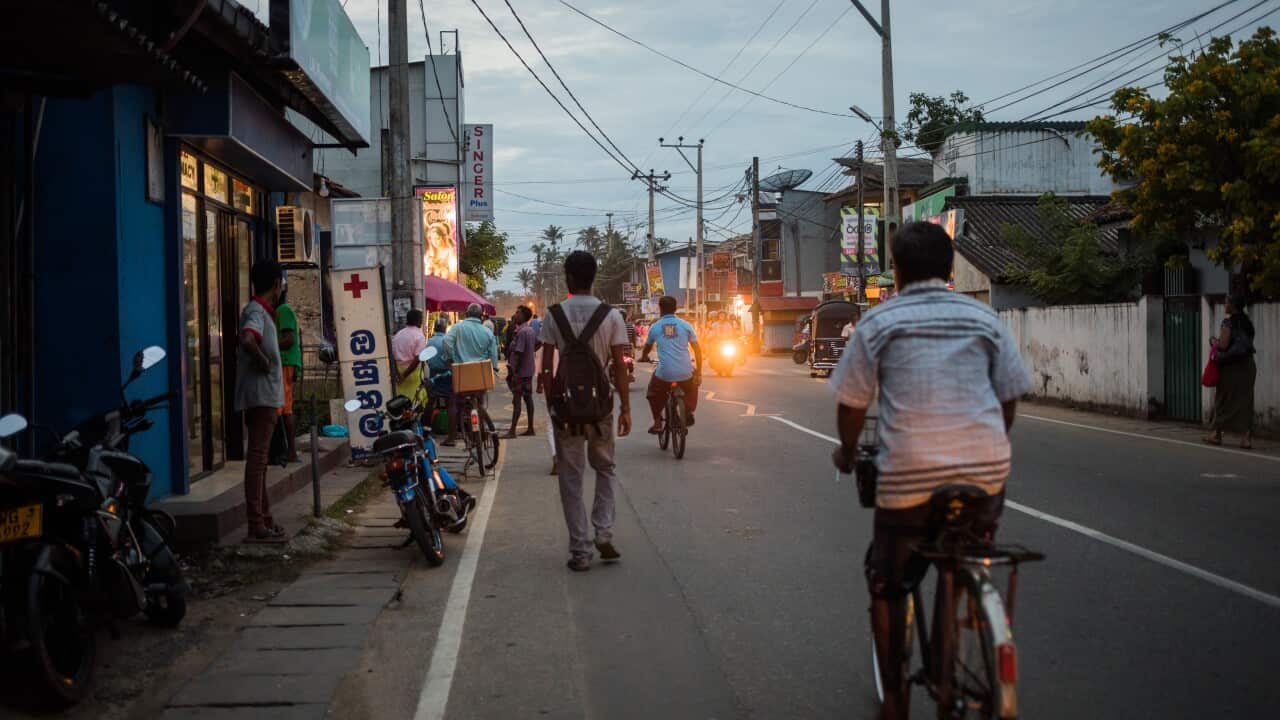Key Points
- Ranil Wickremesinghe will serve as the country's president until 2024.
- He takes charge taking charge of a bankrupt nation where millions of people are enduring shortages of vital goods.
Veteran politician Ranil Wickremesinghe has been sworn in as Sri Lanka's new president to take charge of a nation bitterly angry he will remain in power amid an unprecedented economic crisis.
Six-time prime minister Mr Wickremesinghe has been elected as crisis-wracked Sri Lanka's new president with the backing of the disgraced former leader's party.
Official results gave the veteran politician 134 votes, an absolute majority in the 225-member parliament, after former president Gotabaya Rajapaksa fled the country and resigned in the wake of
"Our divisions are now over," he said in a brief acceptance speech in parliament, urging his defeated rivals "to join me and work together to bring the country out of the crisis we are facing".
Mr Wickremesinghe will serve the balance of Mr Rajapaksa's term, which runs until 2024.
What is happening in Sri Lanka?
Mr Wickremesinghe takes charge of a bankrupt nation that is in bailout talks with the International Monetary Fund, with its 22 million people .
Protests over the unprecedented economic crisis have been raging for months. Mr Wickremesinghe will face an uphill battle to win support among some demonstrators, who, along with the now ousted Mr Rajapaska, have been calling for him to resign.
The UN has warned that Sri Lanka is heading for a humanitarian catastrophe with months of food, fuel and medicines shortages beginning to bite.
More than five out of every six families are eating less food, according to the World Food Programme, while schools and non-essential government institutions are closed for weeks to reduce commuting and save fuel.
Motorists queue for hours on the rare occasion petrol or diesel are available, and the country is enduring lengthy power cuts as the government has no money to import oil for generators.
Even according to official figures, inflation has crossed 50 percent.
The COVID-19 pandemic devastated both tourism and overseas remittances, two of the country's economic mainstays, with problems exacerbated by policy blunders.
More than half of the country's crops failed after Mr Rajapaksa banned agrochemical imports last year. The ban was lifted after six months, but fertiliser is yet to return.
Sri Lanka declared itself bankrupt in mid-April when the government defaulted on its US$51 billion ($74 million) foreign debt.
Who is Ranil Wickremesinghe?
Mr Wickremesinghe, a trained lawyer, has served as Sri Lanka's prime minister a record six times.
He took over as prime minister in May after the former president's elder brother quit from the position following clashes between pro and anti-government protesters that triggered a deadly wave of violence.
Mr Wickremesinghe has run unsuccessfully for president twice before but secured enough votes among politicians despite controlling just one seat - as leader of the United National Party (UNP).
His victory in parliament came after he secured the backing of many within the main party, Sri Lanka Podujana Peramuna (SLPP), which is dominated by the Rajapaksa family - the country's most powerful political dynasty.
But whether he can quell mass protests that led to the ouster of the previous president remains to be seen.
The protesters, who opposed Mr Rajapaksa, are also against Mr Wickremesinghe, seeing him as a proxy of the disgraced Rajapaksa clan.
It's a claim he denies.
"I am not a friend of the Rajapaksas. I am a friend of the people," said Mr Wickremesinghe.
He has declared a state of emergency and drawn a distinction between "protesters" and "rioters", vowing to take a tough line against troublemakers.
What has the reaction been?
Protesters have vowed to maintain their efforts to force Mr Wickremesinghe from office, but most admit that they have run out of steam and public support was waning.
When university students at the forefront of the struggle called for a march in Colombo on Tuesday, fewer than 1,000 people turned up, with police estimating the numbers at only a few hundred.
A campaign to surround the national parliament and block Wednesday's vote also fizzled out as no one turned up.
"We supported the struggle, but after getting rid of the Rajapaksa family there is no point in continuing it and causing disruptions," a doctor at the national hospital told AFP, asking not to be named.
One organiser of previous protests, Chameera Dedduwage, said Mr Rajapaksa's removal had been one of the movement's goals, and protesters would have to be satisfied with achieving it.

Sri Lanka's embattled President has fled the country arriving in the Maldives on a military jet just hours before a deadline for his promised resignation. Source: SBS News
However, he added, "You can't have an anarchical country. We must work according to the constitution. As the opposition, we will give our utmost support" for any plan to fix the economy.
Others, however, are determined to continue their fight.
Outside the presidential secretariat, where protesters camped for months, actress Damitha Abeyrathne, 45, said: "We lost. The whole country lost."
"The politicians are fighting for their power. They are not fighting for the people. They have no feeling for people who are suffering."
"People deserve fuel, transportation, we deserve anything citizens need," said Kasumi Ranasinghe Arachchige, 26. "Until we see no one in Sri Lanka is struggling, the protest continues."
Another protester, Buwanaka Perera, said, "The occupy movement shall continue, the struggle shall continue. We will continue the protest until Ranil goes home."











